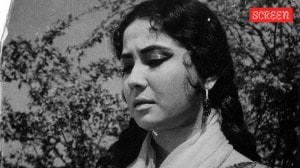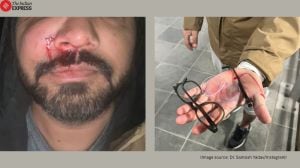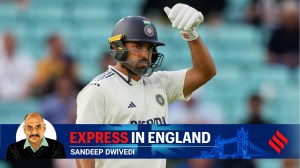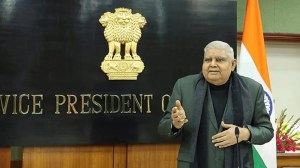Silver lining: blind girls being trained as RJs
It makes sound sense and someone had the vision for it,too. Eight students of Jagruti School for Blind Girls (JSBG) and Nirmalya Trust are being trained as radio jockeys by city-based Seamless Education Academy (SeamEdu).
It makes sound sense and someone had the vision for it,too. Eight students of Jagruti School for Blind Girls (JSBG) and Nirmalya Trust are being trained as radio jockeys by city-based Seamless Education Academy (SeamEdu).
Sangeeta Sonawane,from Aurangabad,is excited on being selected for the course. A member of the Sur Sargam Orchestras junior group,Sangeeta will be finishing her graduation this year. Although I have completed the Maharashtra State Certificate in Information Technology (MS-CIT) course recently,I was nervous when I was told about the course. But now,I have learnt to handle the mike and microphone and am working on voice modulation, she says.
Dr Arun Nigavekar,former chairman of University Grants Commission and chairman of SeamEdu,said,Radio jockeying is one of the many fields where the visually-impaired have immense professional scope. Pune will have eight new radio stations next year,while India will see at least 250 more radio stations. One can imagine the scope for voice-over artists in this scenario.
Kedar Nigavekar,managing director of SeamEdu,said they are in talks with a leading radio channel about the recruitment of these students.
Gene Parker,who herself is blind and has been working as a radio jockey since 1995,is training these students as well as providing the software backup to SeamEdu.
I have known many visually-impaired radio professionals working in radio engineering,field recording and so on. As long as they are provided with customised editing software for the blind,they can do amazing work, Gene Parker says.
Radio stations must be willing to hire such RJs without any presumptions. They must be receptive and All India Radio can set an example, she says.
RJ Jack,who is one of the trainers,said,All these students are talented and are picking up the course. They want to be treated as equals.
The three-month course includes radio history and research,basic physics behind the functioning of the radio,personality development,radio editing software and practicals. We expect that these students can earn Rs 8,000-10,000 as starting salary, said Arun Nigavekar.
As per rules,an employer with more than 500 employees should have three per cent of his staff from the differently-abled category. Employing visually-impaired trained radio jockeys can be a beginning in this field, said Arun Nigavekar. Sakina Bedi of JSBG and Meena Bedarkar of Nirmalya Trust said this could bring blind students to the mainstream. These students can also work in animation,voice mail messaging,special effects,podcasts and so on. SeamEdu is planning a national repository of such trained radio jockeys who can be referred to various industries.
There will be six batches of five students each for this customised radio jockeying course in a year. While the first batch has already begun,the next one begins in April. We are not charging anything in the first six months. However,we shall look forward to sponsors for the next batches, said Saurabh Gadgil,vice-chairman of SeamEdu.












